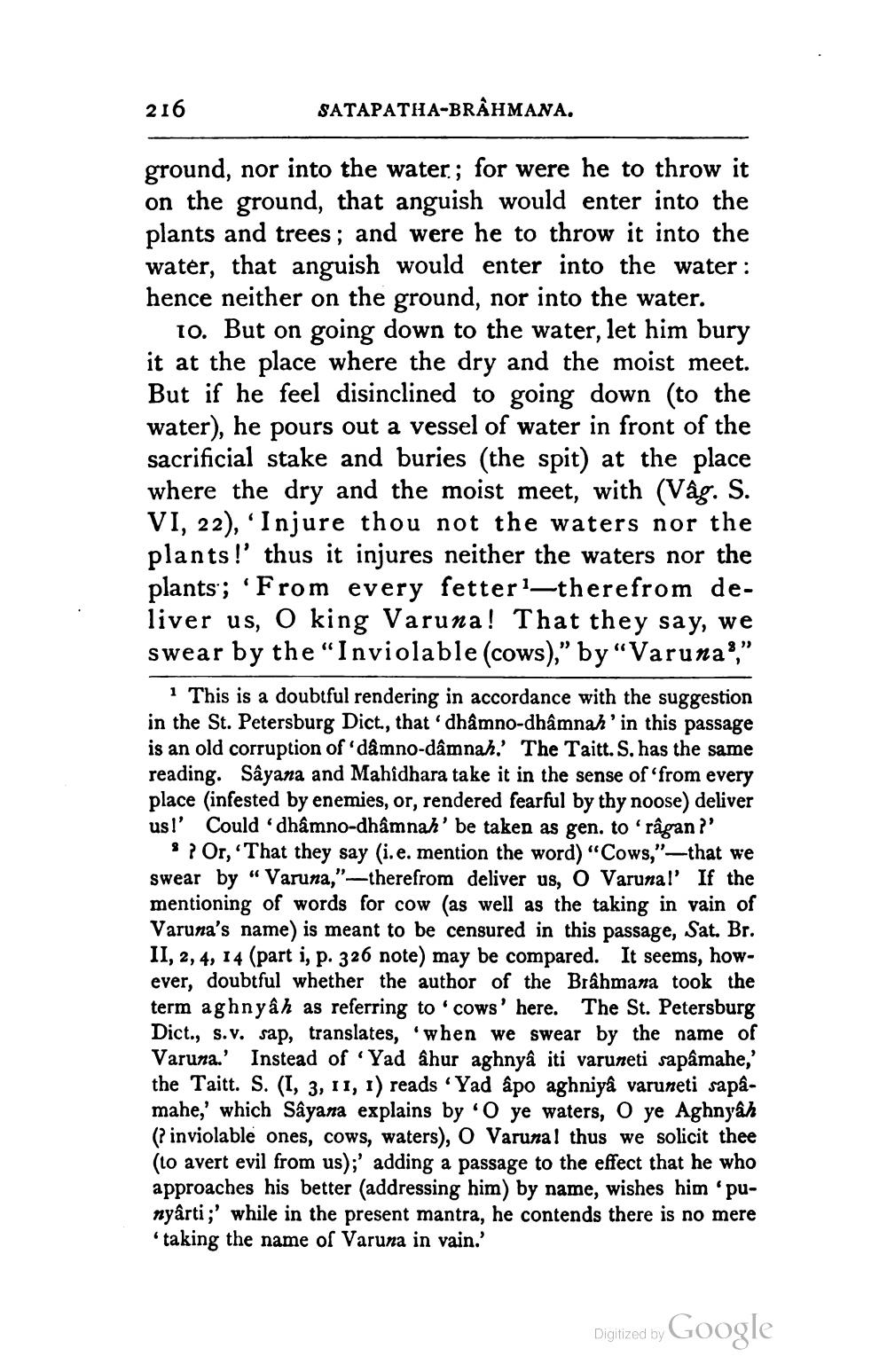________________
216
SATAPATHA-BRAHMANA.
ground, nor into the water.; for were he to throw it on the ground, that anguish would enter into the plants and trees; and were he to throw it into the water, that anguish would enter into the water : hence neither on the ground, nor into the water.
10. But on going down to the water, let him bury it at the place where the dry and the moist meet. But if he feel disinclined to going down (to the water), he pours out a vessel of water in front of the sacrificial stake and buries (the spit) at the place where the dry and the moist meet, with (Vág. S. VI, 22), “Injure thou not the waters nor the plants!' thus it injures neither the waters nor the plants'; ‘From every fetter?—therefrom deliver us, o king Varuna! That they say, we swear by the “Inviolable (cows),” by"Varuna 3,"
1 This is a doubtful rendering in accordance with the suggestion in the St. Petersburg Dict., that'dhâmno-dhâmnah' in this passage is an old corruption of damno-dâmnah,' The Taitt. S. has the same reading. Sâyana and Mahidhara take it in the sense of from every place (infested by enemies, or, rendered fearful by thy noose) deliver usl' Could dhâmno-dhâmnah' be taken as gen, to'râgan?'
$? Or, 'That they say (i.e. mention the word) “Cows,"—that we swear by “ Varuna,"—therefrom deliver us, O Varunal' If the mentioning of words for cow (as well as the taking in vain of Varuna's name) is meant to be censured in this passage, Sat. Br. II, 2, 4, 14 (part i, p. 326 note) may be compared. It seems, however, doubtful whether the author of the Brahmana took the term aghnyâh as referring to 'cows' here. The St. Petersburg Dict., s.v. sap, translates, when we swear by the name of Varuna.' Instead of "Yad Khur aghnya iti varuneti sapâmahe,' the Taitt. S. (I, 3, 11, 1) reads "Yad apo aghniya varuneti sapamahe,' which Sâyana explains by 'O ye waters, O ye Aghnyâh (? inviolable ones, cows, waters), O Varunal thus we solicit thee (lo avert evil from us);' adding a passage to the effect that he who approaches his better (addressing him) by name, wishes him 'punyârti;' while in the present mantra, he contends there is no mere taking the name of Varuna in vain.'
Digitized by Google




